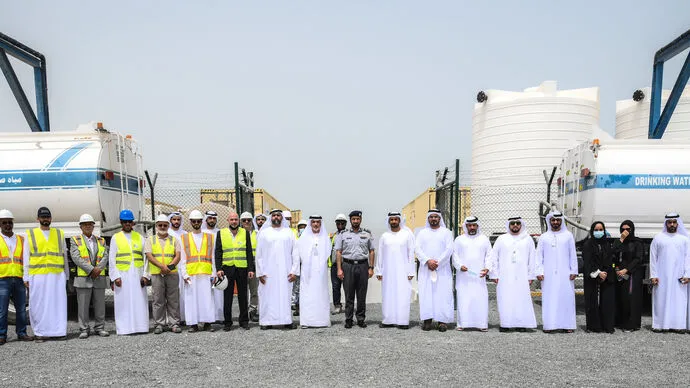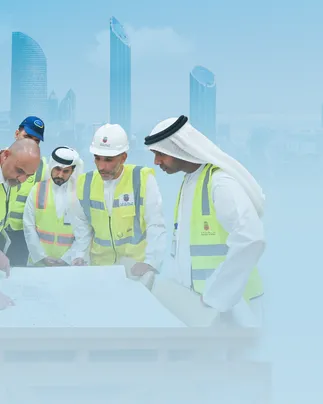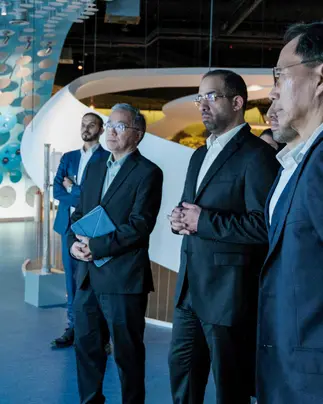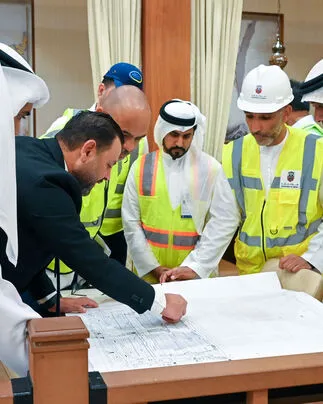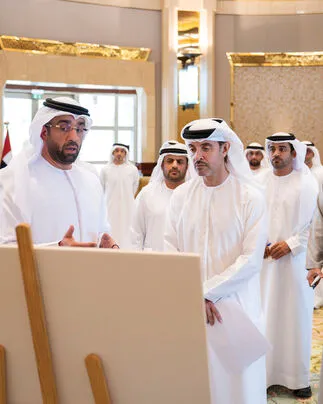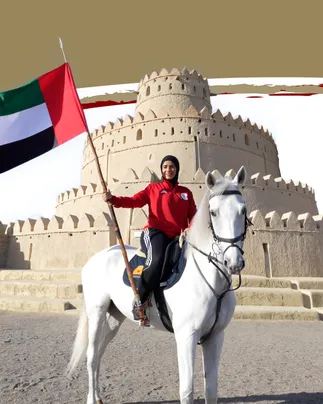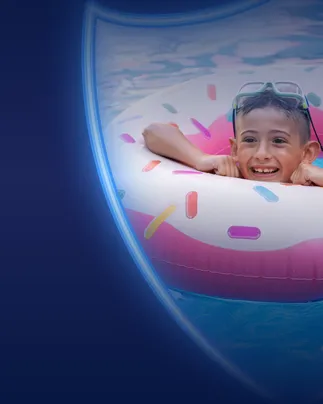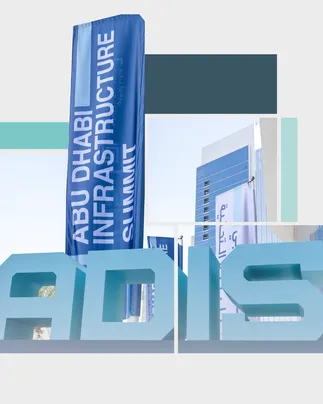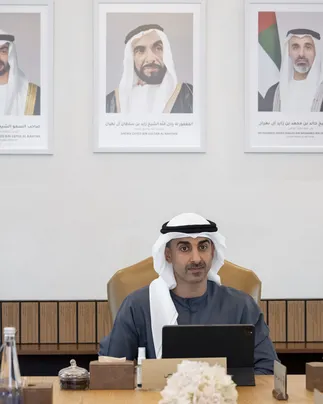A government delegation visited the Al Sadr Reverse Osmosis Seawater Desalination Plant in the Al Sadr/Al Taweelah region of Abu Dhabi – one of the most important emergency seawater desalination facilities in the emirate, enhancing its supply security in accordance with sustainable, eco-friendly practices.
The delegation brought together His Excellency Staff Major General Pilot Faris Khalaf Al Mazrouei, Abu Dhabi Police Commander-in-Chief, Head of The Emergency, Crisis and Disasters Management Team; H.E. Eng. Ahmed Mohammed Al Rumaithi, Undersecretary of the Abu Dhabi Department of Energy (DoE); H.E. Dr Nasser Humaid Obaid Al Nuaimi, Deputy Director General of the Emergencies, Crises, and Disasters Management Centre - Abu Dhabi, and Dr Afif Saif Al Yafei, Chief Executive Officer at the Abu Dhabi Transmission and Despatch Company (TRANSCO), along with high-ranking officials and engineers.
The delegation visited the facilities at the Al-Sadr desalination plant, where senior engineers offered a detailed explanation of the factory’s operations, daily production capacity, and ability to support the water network and enhance security of water supplies in the Emirate of Abu Dhabi in times of emergency.
H.E. Maj. Gen. Pilot Faris Khalaf Al Mazrouei asserted that “the water sector in the UAE is among the key strategic issues for sustainable development and is given utmost priority by the country’s wise leadership, painting a positive outlook for the future.”
“Al Sadr Reverse Osmosis Seawater Desalination Plant employs highly advanced technologies and is poised to become one of the most important desalination facilities in the UAE, reflecting the country’s commitment to addressing the water situation through science-based planning, strategies, and calculated solutions that are aligned with a clear vision for the future,” H.E. Al Mazrouei added. “This, in turn, paves the way for scientifically addressing all challenges and thus ensuring continued success in the water sector moving forward.”
For his part, H.E. Eng. Ahmed Mohammed Al Rumaithi said: “We are delighted to be visiting the Al Sadr Reverse Osmosis Seawater Desalination Plant, which uses one of the most advanced and efficient desalination technologies, allowing us to significantly cut down on the amount of energy used to operate the facility. As a result, the plant helps ensure a sustainable water sector in the emirate in light of the tremendous challenges we are facing, most notably water scarcity. The Al Sadr facility constitutes a notable addition to Abu Dhabi’s many reverse osmosis water desalination plants that help ensure water sustainability in the future; we take pride in this achievement and in the outstanding team operating the station.”
“Reverse Osmosis plants enhance our production capacity and allow us to provide water under any circumstances,” H.E. Al Rumaithi. “It is a flexible technology capable of processing water from various sources, including sea water, to produce drinking water. With that in mind, we can understand the clear strategic direction to expand the use of this technology in Abu Dhabi to support the emirate’s water security in the long term.”
Dr. Afif Saif Al Yafei, CEO of Abu Dhabi Transmission & Despatch Company (TRANSCO), commented on the visit, stating: "We are proud of this latest achievement for Abu Dhabi Transmission & Despatch Company "TRANSCO", a subsidiary of Abu Dhabi National Energy Company (TAQA Group). The plant was built in collaboration with our strategic partners in Abu Dhabi, and was delivered in record time: from the early infrastructure work, through to commissioning and potable water generation. This is one of many mobile water treatment plants TRANSCO has started to build at key locations across the emirate, in order to strengthen Abu Dhabi's water security and supply requirements during emergencies."
Two reverse osmosis desalination units were set up in the Al-Sadr area, forming part of a wider integrated project to install approximately 50 mobile units in total. The project’s total capital investment was AED256,726,000, while operation and maintenance costs for two years hovered around AED80,566,050.
The units at the Al Sadr facility can provide water for residential areas and other nearby facilities in emergencies or crisis situations, guided by expert teams when needed, supplying tanks of drinking water or using water networks set to be built in the future.


